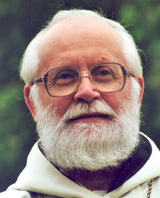 |
|
||
|
|
|||
November 8, 2015, 32nd Sunday "B"
Monastery of Kunnambetta, Kerala, India
H O M I L Y
We approach the end of the liturgical year, and the end of Mark's
Gospel. Next Sunday, we will hear the
great eschatological discourse describing the end of times. One of the great characteristics of the final
times is that there will be a radical reversal, change, brought about. Those who were underprivileged in this world
will be enjoying God's kingdom, and those who enjoyed this world while neglecting
their neighbors will be suffering.
We must read today’s Gospel in this context. It is once more a contrast
between rich and poor, represented here by the scribes and the widows. It corresponds to the teaching of the
beatitudes, where the contrast between poor and rich indicates the imminence of
the Kingdom, and the reversal of inequalities.
When I was a young boy, I used at times to go around our parish for some
of the annual parish collections. I
still remember very vividly a rich and generous man of our parish who would
usually tell us: "It's always a pleasure for me to give. my left hand
ignores what my right hand gives. Take
for example; yesterday I gave $100.00 to so and so..." I often wondered if he had ever heard the
passage of the NT about the Pharisees...
There is nothing more revolting than seeing rich tourists in poor
countries ostentatiously distributing coins or even paper money to hungry
children, and feeling good about their generous heart! The widow of the Gospel,
like the one who fed the prophet Elijah, gave from their poverty, by contrast
with the rich who gave from their power and privilege. These two widows contradict the principle
that one only gives what one has; they actually gave what they did not have.
This provides us with a very beautiful and deep insight into who God
is. If God were someone who gives only
from his abundance, surely the rich donors would better represent him than the
widow with her mite; and the importance of the widow's gesture for Jesus would
be puzzling. Can we say that God too
gives from his poverty? Yes, if our God
is the God revealed in Jesus: a God who is not a rich tourist throwing coins to
poor children but a God who gives himself, after becoming poor with the poor.
This is beautifully expressed in the text of the Epistle to the Hebrews that
we read a few minutes ago. Jesus did not enter the sanctuary with material
sacrifices, but with his own blood. Which means that he did not give us
"things"; he gave himself, his own being, his own life.
If the Gospel we heard was simply a condemnation of riches and a praise
of the poor, most of us could feel good about it. Because somehow almost all of
us can claim not to be so rich after all, or even to be poor. The harsh words of the Gospel are therefore
for the others... However, this is not
the real message. The real message is
that Jesus is expecting us to give not what we have (little or small) but what
we are: To give ourselves to him and to our sisters and brothers.
The first reading helps us to understand the total meaning of the
Gospel. We are not expected only to give
to God; we are expected, like the widow of Sarepta, to give everything we have,
to give what our life depends on, to give our own life for our sisters and brothers.
As we continue our celebration of Jesus who gave himself to us as food,
let us examine ourselves to discover new ways in which we could give ourselves
to those with whom we live, and to all those who may be in need of us.
Armand Veilleux
|
|
||
|
|
|||
